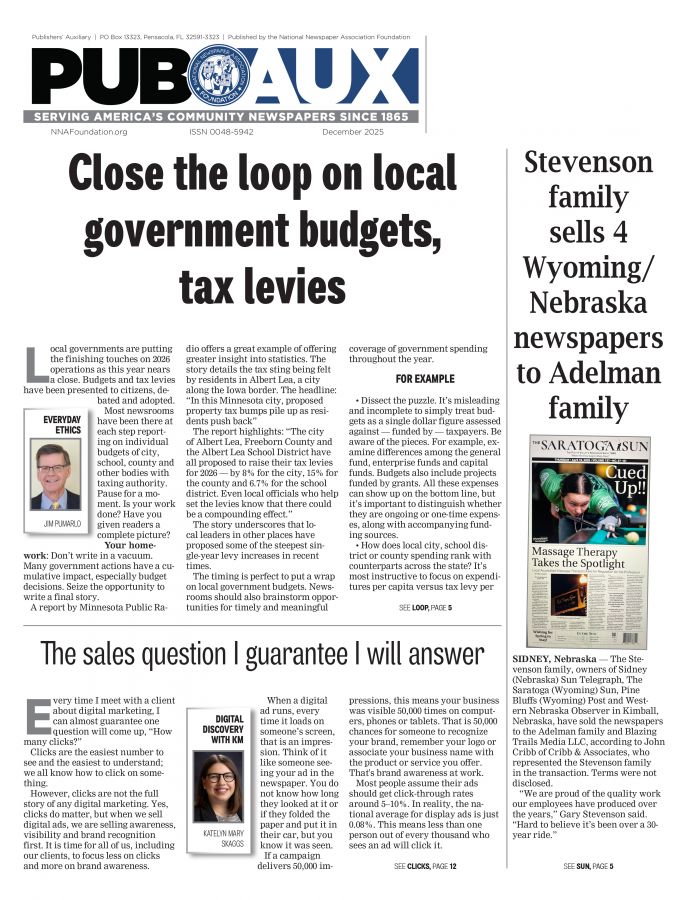Justice Scalia's disastrous decision on religious freedom
Feb 19, 2016
By Charles C. Haynes
Inside the First Amendment
In the days following the death of Justice Antonin Scalia on Feb. 13, conservative religious and political leaders have lavished praise on the long-serving justice as a champion of religious freedom.
Alan Spears, head of the Christian advocacy group Alliance Defending Freedom, hails Scalia as "the most vocal and passionate voice on the Supreme Court for religious freedom." Sen. Ted Cruz warns, "We are one justice away from a Supreme Court that would undermine the religious liberty of millions of Americans."
But surely this is either a case of selective amnesia or wishful thinking.
Justice Scalia was, of course, a devout Catholic who vigorously opposed abortion and LGBT rights at every turn. And he was, without question, an advocate of a lower wall of separation between church and state — a porous wall that would allow affirmations of God by government. All of this endeared him to religious and social conservatives.
But Justice Scalia was no defender of religious freedom.
On the contrary, Scalia authored Employment Division v. Smith, the landmark 1990 Supreme Court decision that all but erased the Free Exercise clause from the First Amendment.
Before Smith, religious Americans could invoke the First Amendment to seek relief from laws or regulations that substantially burdened the practice of their faith. Government could not deny religious exemptions without demonstrating a compelling state interest — and showing that it has pursued that interest in the manner least restrictive, or least burdensome, to religion.
Under this "compelling state interest" test — fully articulated in the 1963 Supreme Court decision Sherbert v. Verner — religious individuals enjoyed a high level of protection for the freedom to practice their faith openly and freely without governmental interference.
In the Smith decision, Justice Scalia, joined by four other justices, radically re-interpreted the Free Exercise clause by ruling that burdens on religious freedom no longer had to be justified by a compelling state interest. Although the government cannot pass laws targeting religious practice, it can pass laws that burden religious exercise if the law is "neutral" and "generally applicable."
Consider, for example, the question at issue in the Smith case itself: Can the state of Oregon ban the use of peyote — a cactus with hallucinogenic properties — without providing a religious exemption for members of the Native American Church who ingest small amounts of peyote in worship ceremonies (a practice that may date back thousands of years).
Two Native Americans challenged the law after being denied unemployment benefits because they were fired for using peyote in their religious practice. Most legal experts expected the outcome to turn on whether or not Oregon could demonstrate a compelling reason for prohibiting peyote without exceptions. Instead, Justice Scalia used the case to sharply curtail the use of the long-standing free-exercise test.
In his majority opinion, Scalia ruled that government no longer has to show a compelling state interest for denying religious exemptions — as long as the law in question applies generally to everyone.
Thus, Oregon cannot pass a law stating that Native Americans are prohibited from using peyote, but it could accomplish the same result by prohibiting the use of peyote by everyone. Either way, a central religious ritual for some Native Americans would be illegal.
If religious groups want an exemption from a generally applicable law, said Scalia, they should seek a legislative remedy. This, of course, turns the First Amendment on its head: Free exercise of religion is protected by the First Amendment precisely because it is a fundamental right that is not subject to a majority vote. Seeking religious accommodation through legislation is especially difficult for religious minorities and unpopular faiths — and keep in mind that most of us are a religious minority somewhere in the country.
Leaders of many faiths were stunned by Scalia's evisceration of the Free Exercise clause. After Smith, it would become difficult — if not impossible — to get relief from laws and regulations that seriously burdened the practice of religion. In the three years following Smith, more than 50 reported cases were decided against religious groups and individuals.
That's why more than 60 religious and civil liberties groups — from the ACLU to the National Association of Evangelicals — joined together to "restore" the compelling interest test by getting Congress to pass the Religious Freedom Restoration Act of 1993.
Although the Supreme Court struck down RFRA as applied to the states, it continues to apply to the federal government (as we saw in the 2014 Hobby Lobby decision). Many states have passed their own RFRAs — mostly without controversy until recent years when opponents of same-sex marriage decided (mistakenly, in my view) that RFRA could provide religious exemptions to non-discrimination laws.
The current confusion and contention surrounding the meaning of "free exercise of religion" is the fallout from Justice Scalia's decision in Smith. Without First Amendment protection, religious individuals and groups are left to seek accommodation through the political process — a messy, divisive arrangement that puts matters of conscience up for a vote.
If you agree that the First Amendment as applied by the Court for decades went too far in protecting free exercise of religion, then by all means celebrate Justice Scalia's legacy on religious freedom.
But if you are appalled, as I am, that in far too many cases courts no longer treat religious freedom as a constitutional right, then hope for a replacement on the Supreme Court who will vote to overturn Justice Scalia's disastrous decision in Employment Division v. Smith.
Charles C. Haynes is vice president of the Newseum Institute and founding director of the Religious Freedom Center. E-mail: chaynes@newseum.orgWeb: www.religiousfreedomcenter.org Twitter: @hayneschaynes.







